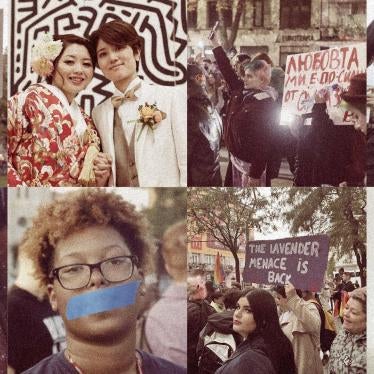While wars in Gaza, Syria, Iraq, and elsewhere grab the attention of the world, a different, everyday struggle rages in Europe: violence against women. One in three women in the European Union has experienced some form of physical and/or sexual assault since the age of 15, a survey found. An estimated 35 percent of women worldwide have experienced physical or sexual violence. The numbers are staggering, made worse by the fact that when women go to the police for help, they can’t always count on them or the law to protect them.
Insufficient laws, loopholes, and bad practices stand in the way of women getting help. Women like Zsuzsa whom I met in Hungary, who heard from the police: “unless blood flows, there is nothing we can do.” Or Ngalla, an undocumented woman from Cameroon in Belgium, whose fear of deportation prevented her from going to the police. Or Selvi in Turkey, whom police sent back home so many times to “make up” with her abuser – who beat her with a brick and pushed her off a roof – that she gave up on safety.
But there’s hope. These women now have a better shot at getting the support they need from their governments because today, a groundbreaking treaty enters into force. Officially called the Council of Europe Convention on Preventing and Combating Violence against Women and Domestic Violence – or “Istanbul Convention” for short – the treaty is practical and modern in both the level of detail and breadth, covering domestic violence as well as other forms like sexual harassment, female genital mutilation, and stalking.
Practically, this means that from today the treaty is binding law in all the countries that have ratified it (14 and counting, including Turkey but not yet Belgium or Hungary), and lawyers, victims, advocacy groups, and others can use it to hold their government to account. An independent group of experts will soon be set up to monitor how governments comply with the treaty.
From Albania to Spain, from Bosnia and Herzegovina to Italy, from France to Turkey, groups are already starting to use this treaty to force their governments to prevent violence, to protect women, and to invest in the future of survivors. The struggle to end violence against women is a long one, but thanks to this treaty we have more power to fight it.








